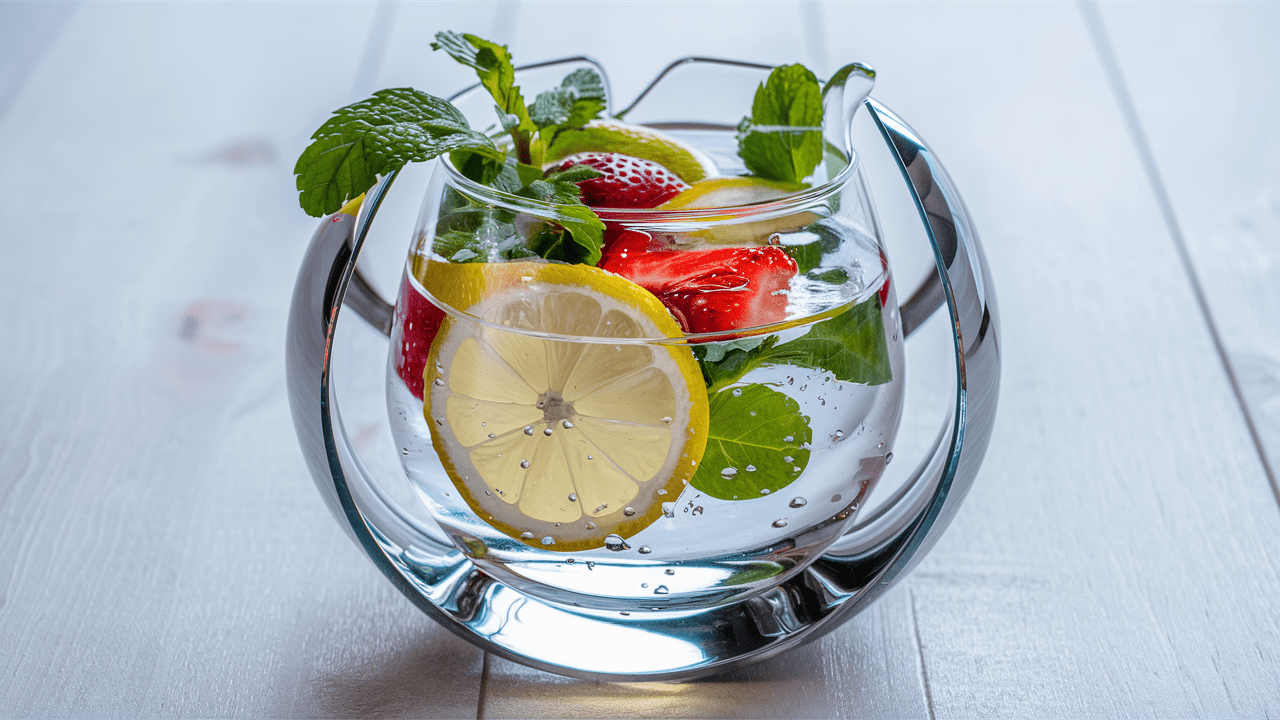When seeking health and energy, we commonly prioritize external elements like food and physical activity. Despite their significance, genuine well-being originates internally. Fostering a comprehensive wellness strategy that encompasses not just physical health but also mental and emotional equilibrium is key to nourishing your body from within. Here, we’ll delve into the fundamental aspects of internal nourishment and offer guidance on integrating them into your everyday routine to enhance your overall health and vitality.
1. Mindful Eating:

The foundation of nourishing your body from within is mindful eating. This means paying attention to the foods you consume, savoring each bite, and listening to your body’s hunger and fullness cues. Instead of viewing food as mere fuel, approach it as a source of nourishment and pleasure. Choose whole, nutrient-dense foods that support your body’s needs and provide sustained energy throughout the day.
2. Hydration:

Proper hydration is essential for maintaining optimal health and vitality. Water plays a crucial role in nearly every bodily function, from regulating temperature to flushing out toxins. Aim to drink at least eight glasses of water per day, and consider incorporating hydrating foods such as fruits and vegetables into your diet. Herbal teas and coconut water are also excellent options for staying hydrated and replenishing electrolytes.
3. Nutrient-Rich Foods:

Fueling your body with nutrient-rich foods is key to nourishing it from the inside out. Focus on incorporating a variety of fruits, vegetables, whole grains, lean proteins, and healthy fats into your meals. These foods provide essential vitamins, minerals, antioxidants, and phytonutrients that support overall health and vitality. Aim for a colorful plate filled with a rainbow of fruits and vegetables to ensure you’re getting a diverse array of nutrients.
4. Gut Health:

The health of your gut plays a significant role in your overall well-being. A balanced gut microbiome is essential for proper digestion, nutrient absorption, immune function, and even mental health. To support gut health, include probiotic-rich foods such as yogurt, kefir, sauerkraut, and kimchi in your diet. Prebiotic foods like onions, garlic, bananas, and asparagus also feed the beneficial bacteria in your gut, promoting a healthy microbiome.
5. Stress Management:

Chronic stress can take a toll on your body and undermine your efforts to nourish it from within. Incorporating stress management techniques such as meditation, deep breathing, yoga, and mindfulness into your daily routine can help calm the mind, reduce stress hormones, and promote overall well-being. Prioritize self-care activities that nourish your body, mind, and spirit, whether it’s taking a warm bath, spending time in nature, or practicing gratitude.
6. Quality Sleep:

Sleep is essential for replenishing your body and mind and supporting overall health. Aim for seven to nine hours of quality sleep each night, and create a relaxing bedtime routine to signal to your body that it’s time to wind down. Turn off electronic devices, dim the lights, and engage in calming activities such as reading or gentle stretching. Quality sleep is crucial for hormone regulation, immune function, and cognitive performance, so prioritize getting enough rest each night.
Understanding the Impact of Your Choices
- Cellular Fuel: The nutrients in whole foods support energy production, tissue repair, and the countless biochemical reactions within your body.
- The Gut-Brain Connection: A diverse gut microbiome, nurtured by fiber-rich foods, supports digestion, immune function, and even influences mood and mental clarity.
- Keeping Inflammation at Bay: Excess sugar, processed foods, and unhealthy fats promote inflammation, linked to chronic conditions like heart disease, diabetes, and arthritis. Whole foods have the opposite effect, helping to quell inflammation.
- Mental Wellness Connection: A growing body of research links dietary choices to mental health. Nutrient-rich foods may help reduce anxiety and depression and foster a more positive outlook.
Putting it into Practice
- Eat the Rainbow: Variety ensures you get a broad spectrum of nutrients. Fill your plate with colorful fruits and vegetables every day.
- Listen Inward: Notice how different foods make you feel – energized vs. sluggish, satisfied vs. still craving. This awareness can guide better choices.
- Aim for Progress, Not Perfection: Strive to fill most of your meals and snacks with nourishing choices while allowing flexibility for the occasional indulgence.
- Spice It Up: Experimenting with herbs and spices adds flavor excitement and packs a punch of antioxidants and anti-inflammatory compounds.
Notice the Small Wins
Shifting to a more nourishing lifestyle isn’t about overnight perfection – it’s about progress. Notice the positive changes as you go:
- More Energy: As you nourish your cells, you may find yourself with increased energy and less need for caffeine crashes.
- Clearer Skin: A whole-foods diet often leads to glowing skin from within.
- Mental Focus: Good nutrition and stress management can lead to improved focus and mental clarity.
- Stronger Immunity: Nourishing your body supports immune health, helping you fight off illness better.
Remember, nourishment is a journey, not a destination. Celebrate the small wins and focus on how positive changes make you feel stronger, healthier, and more energized from the inside out!
FAQs
Q1. How can I incorporate mindfulness into my eating habits?
Start by slowing down and paying attention to your food as you eat. Chew each bite slowly, savoring the flavors and textures. Avoid distractions such as television or smartphones and focus solely on the experience of eating.
Q2. What are some signs of dehydration to watch out for?
Signs of dehydration include increased thirst, dry mouth, dark urine, fatigue, dizziness, and headaches. It’s essential to drink water throughout the day to stay hydrated, especially in hot weather or during physical activity.
Q3. Are there specific foods that promote gut health?
Yes, foods rich in probiotics, such as yogurt, kefir, and fermented vegetables, can help support a healthy gut microbiome. Additionally, incorporating prebiotic foods like garlic, onions, and bananas can feed beneficial bacteria in the gut.
Q4. How does stress impact overall health?
Chronic stress can negatively impact physical health by weakening the immune system, increasing inflammation, and raising the risk of chronic diseases such as heart disease and diabetes. It can also affect mental health, contributing to anxiety, depression, and insomnia.
Q5. What are some tips for improving sleep quality?
Create a relaxing bedtime routine, limit screen time before bed, avoid caffeine and heavy meals close to bedtime, and create a comfortable sleep environment free of distractions.
